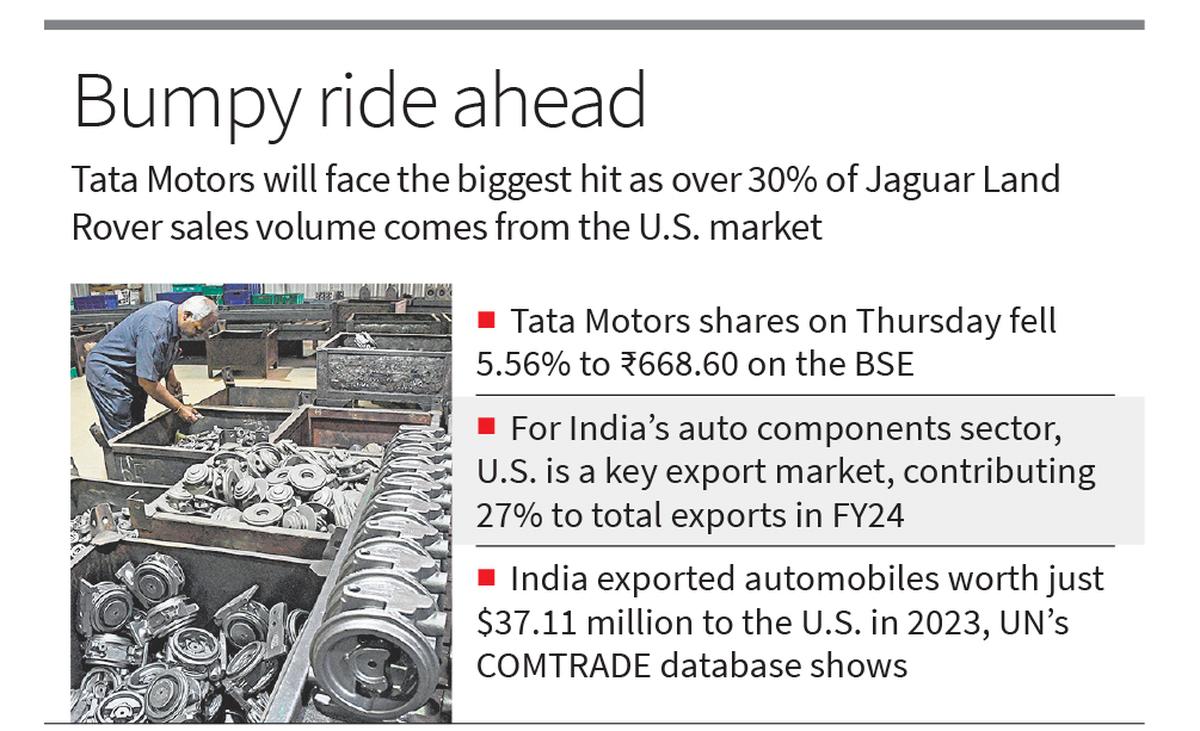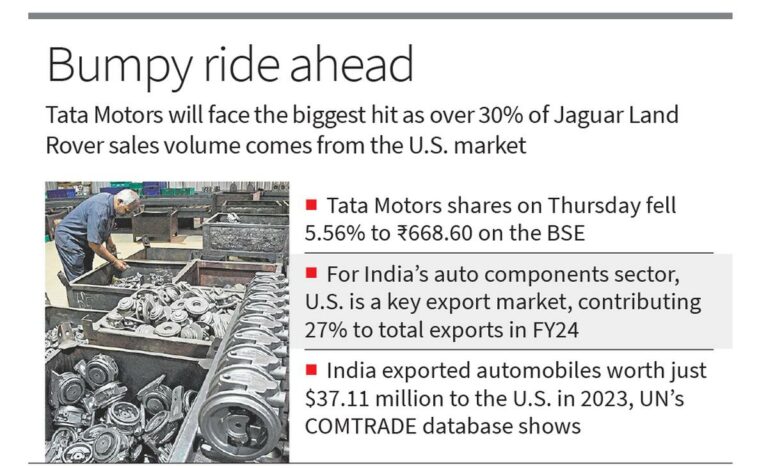Trump Tariff on Imported Cars: Jaguar Land Rover and Auto Parts Units at Risk
U.S. President Donald Trump’s plan to impose a 25% tariff on imported cars and auto parts could significantly affect Tata Motors’ luxury car subsidiary, Jaguar Land Rover (JLR), as well as numerous Indian auto component manufacturers, industry analysts have warned.

According to Mrunmayee Jogalekar, an auto analyst at Asit C Mehta Investment Intermediates Ltd., JLR could face a substantial impact because it derives over 30% of its sales volume from the U.S. market during a nine-month period (9MFY25). “With no manufacturing facility in the U.S., all JLR vehicles will be subject to tariffs, which could impact pricing and profitability,” she explained.
On Thursday, shares of Tata Motors fell 5.56% to ₹668.60 on the BSE, reflecting investor concerns.
Further impacting the sector, tariffs are expected to hit key components, including engines, transmission, powertrain, and electrical parts, particularly those exported to America. These tariffs could have a more significant impact on companies such as Sona Comstar, which generates 43% of its revenue from North America, and Samvardhana Motherson, with an 18% revenue contribution from the region, according to Jogalekar. However, many other component manufacturers have a well-diversified export presence which could help to mitigate the overall impact.
Anuj Sethi, Senior Director at Crisil Ratings, estimates that the operating margins of Indian auto parts manufacturers-exporters will be reduced by 1.25-1.5% (125-150 basis points) from the current 12-12.5% range, assuming full absorption of the tariffs.
“About a fifth of the revenue of India’s auto component sector is derived from exports. Of this, 27% is to the U.S. market alone,” Sethi said.
Naveen K.R., Senior Director at Windmill Capital points out that “India exported approximately 6.7 lakh vehicles in 2024, with exports now accounting for 15–16% of the total domestic automotive sales. When it comes to the U.S. specifically, the export exposure remains relatively limited.”
According to the United Nations COMTRADE database, India exported motor cars and vehicles worth just $37.11 million to the U.S. in 2023, demonstrating the small share. Based on this figure, the direct impact of U.S. tariff hikes on Indian automakers is expected to be limited, as explained by K.R.
EEPC India has warned that the increase in tariffs by the U.S. on imports from the Indian auto industry by an additional 25%, on top of the existing 2-3%, will result in Indian exports facing a significant competitive disadvantage in the U.S. market.
India exports close to $3 billion worth of auto components in the engineering segment annually. Key components shipped include chassis fitted with engines, electrical lighting and signalling equipment, and windscreens.
EEPC India has highlighted the challenge in fully assessing the impact of the tariffs, given that the U.S. has yet to publish detailed annexures or specific tariff lines, thus outlining the specific products within the auto and auto components industry that will be affected.
As a result, EEPC India suggests that a bilateral trade agreement offers a practical strategy for securing market access, while at the same time shielding India’s domestic industry from the negative effects of global competition. An automobile component exporter in Coimbatore said that the new tariff, if implemented, will have a significant impact on India’s suppliers.



